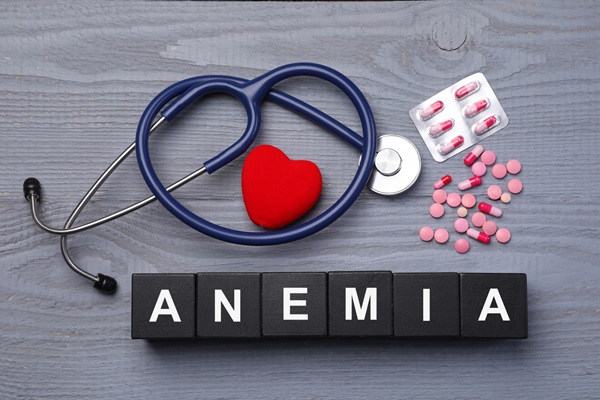How Anemia Affects Your Energy and Overall Health

Anemia can affect life in many ways, the most common of which is lowering energy. An oncologist can help patients with anemia renew their energy and lessen the impact of other common symptoms. This way, patients can minimize how anemia affects their overall health and well-being.
Understanding anemia
Anemia is categorized as a blood disorder because it occurs when there is either (a) a lack of red blood cells or (b) red blood cells that do not work as intended. It can be acquired or inherited, and there are many types. The most common is iron deficiency anemia, according to the American Society of Hematology. Other anemia types include:
- Anemia of chronic disease (ACD). Related to inflammatory conditions such as autoimmune diseases, cancers, or liver or kidney disease.
- Pernicious anemia. Acquired anemia results from an autoimmune condition that blocks vitamin B12 absorption.
- Sickle cell anemia. An inherited type of anemia that alters the shape of red blood cells, interfering with proper blood flow.
- Thalassemia. An inherited anemia marked by low hemoglobin levels and a low red blood cell count.
- Aplastic anemia. An inherited or acquired anemia that occurs when the bone marrow halts red blood cell production.
Oncologists are often involved in managing and treating anemia. As cancer specialists, they can also get additional training in hematology. This double specialization can help patients achieve better health outcomes, especially for those with ACD related to cancer.
How anemia affects energy and everyday health
According to the Cleveland Clinic, the most common symptom of anemia is fatigue. Patients often report feeling too tired to follow through on their obligations. They may also contract infections easily and experience frequent dizziness, headaches, heart palpitations, and shortness of breath. Additionally, their skin may appear pale or take on a yellow tone.
Increasing energy through anemia treatment
It is possible to fully recover from acquired anemia. However, treatment for inherited anemias will focus more on symptom management. In either case, the symptom that tends to bother patients the most is fatigue. An oncologist may recommend one or a combination of the following treatments to increase energy in anemic patients:
Dietary supplements
Dietary supplements can improve anemia rooted in a vitamin or mineral deficiency. This means taking iron supplements for iron-deficiency anemia or vitamin B12 supplements for pernicious anemia. Typically, oncologists will direct patients to take these supplements every day.
While it can be tempting to start taking supplements on your own, always check in with a healthcare provider before starting a new one. Too high a dose can cause unwanted symptoms, such as diarrhea or nausea. An oncologist can also help patients steer clear of drug interactions.
Prescription medication
An oncologist may prescribe medications as part of an anemia treatment plan. Immunosuppressants are a common example, prescribed for patients with ACD related to an autoimmune disorder. Such disorders are characterized by an immune system attacking the body instead of a disease. Therefore, immunosuppressants can prevent the immune system from continuing to attack red blood cells.
Alternatively, a healthcare provider may prescribe erythropoietin-stimulating agents (ESAs). These medications promote red blood cell production. ESAs are typically prescribed for patients with ACD related to kidney disease, surgery, or medical treatments like chemotherapy or HIV/AIDS treatments.
Medical procedures
Medical procedures are sometimes necessary to treat anemia. Iron deficiency anemia can, for example, actually be a symptom of internal bleeding. In these situations, an oncologist would recommend surgery to stop internal bleeding.
Other medical procedures include transfusions to replenish the body's red blood cell count and bone marrow transplants to promote red blood cell production. Also known as a stem cell transplant, these procedures are generally reserved for aplastic anemia.
Prioritize fitness and nutrition
Regardless of whether a medical procedure is needed, anemia symptoms (i.e., fatigue) can improve with the help of a personalized fitness and nutrition plan. The oncologist will craft a fitness plan to accommodate patients who get dizzy and tire easily, such as by emphasizing low-impact aerobics. As for nutrition, the oncologist will recommend eating more well-rounded meals, tailoring these recommendations to the patient's anemia. For instance, patients with iron-deficiency anemia can benefit from eating iron-rich foods like red meat, beans, and dark leafy green vegetables.
Consult an oncologist about anemia
Are you constantly feeling fatigued, seemingly without a cause? An oncologist can diagnose and treat anemia, helping patients find relief from symptoms regardless of whether their condition is acquired or genetic. To schedule an appointment with an oncologist in Marlton, contact Lindenberg Cancer & Hematology Center at (856) 475-0876 today.
Request an appointment here: https://lindenbergcancer.com or call Lindenberg Cancer & Hematology Center at (856) 475-0876 for an appointment in our Marlton office.
Check out what others are saying about our services on Yelp: Anemia in Marlton, NJ.
Recent Posts
A chemotherapy treatment center supports patients through every phase of cancer care, from preparation and infusion to recovery and follow-up. During the first visit, the care team reviews diagnosis details, treatment goals, and proposed drug regimens, then confirms allergies, prior therapies, and current medications. This appointment involves nurses who measure vital signs, draw labs, and…
A surgical oncologist helps diagnose and treat cancer using advanced procedures and often works closely with medical and radiation teams to coordinate care. Many patients hear the term after an abnormal scan, biopsy, or referral, and want a clear explanation of what this specialist does. Understanding how this specialty fits into cancer care can make…
Getting diagnosed with ovarian cancer is overwhelming to say the least, and many patients leave the doctor’s office thinking of questions they wish they had asked. Fortunately, you can bring these questions to your next appointment with the oncologist. Patients are encouraged to ask any questions they have to better understand their diagnosis, explore treatment…
Leukemia treatment aggressively targets cancer cells, but healthy cells can also be affected, leading to side effects. An oncology team can prevent problems early and ease symptoms fast. Clear expectations and communication help patients stay safer and more comfortable during care. Many side effects remain manageable when patients report their symptoms early, and supportive care…


